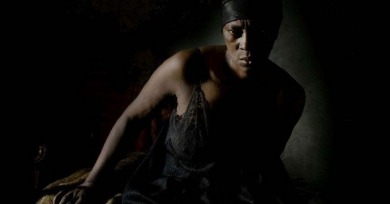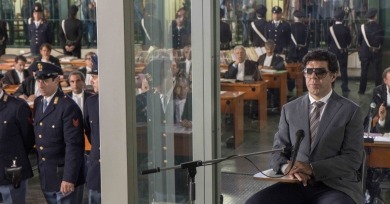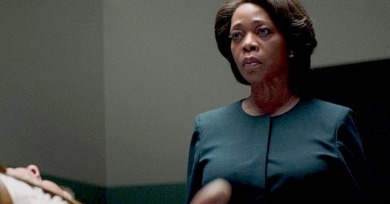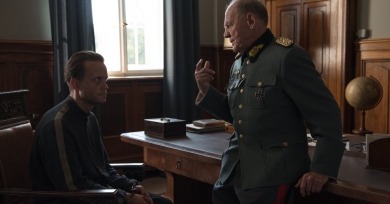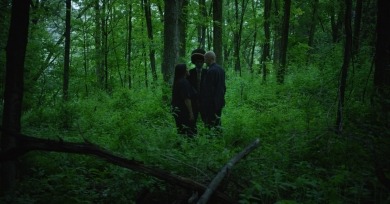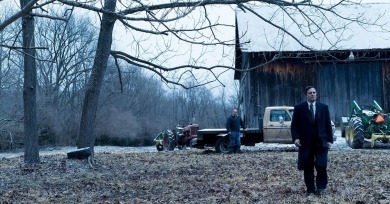Reviews
The basic premise trades in the kind of casual absurdism that’s by now expected of Porumboiu. More surprising is the fact that The Whistlers plays much like a standard policier—a relatively by-the-book offering from a director who has distinguished himself by a willingness to throw out the manual.
One can’t discuss Costa for long without focusing on his use of photography—it seems that with every successive film he learns something new about how digital cameras absorb light that no one else has yet figured out.
She structures her films around dramatic temporal and spatial jumps, but without the backbone of conventional pacing they seem especially jarring; it often takes a minute to realize that Schanelec has shifted gears to a different world.
While it’s tempting to view these histrionics as dramatic fabrications, almost everything that unfolds was captured on video recordings of the actual trial, and lifted from official testimony transcripts. Nonetheless, Bellocchio doesn’t resist the opportunity to ham up the fracas an extra notch or two, to discombobulating effect.
The question of who gets to participate in a society because of their values and cultural awareness is the central question of Bertrand Bonello’s Zombi Child, a film that is quite unlike his previous work.
Ladj Ly has always used his camera to make sense of the immediate and concrete reality he lived in by documenting and interrogating it tirelessly. As such, the director’s late blooming success since the film’s premiere at Cannes last May feels somehow like justice, the reward for a relentless endurance.
With its air of weariness and melancholy, its shadowy interiors and images of doleful professionals going through their motions, Clemency is a sepulchral film, but Chukwu never allows for an air of distanced or rehearsed affectation.
A Hidden Life reminds us that a courageous moral act need not be immediately efficacious to produce meaningful impact. His calm certitude, arrived at through faith, personal reflection, and individual experience, poses a challenge to all those around him, especially those who have decided for various reasons to align themselves with the forces of nationalism.
Shot over three years with a cast and crew of friends and peers, Empty Metal is clearly a film that evolved in the process of production rather than one that was conventionally conceived and executed.
Dark Waters is at once a legal thriller, an environmental disaster movie, and a dramatized historical document of a region, spanning decades, from the atomic age to present. On its face, such a project, set primarily in corporate offices, might seem an unlikely fit for Todd Haynes.
The goal doesn’t seem to be to sincerely interrogate the ways people move through the world following a devastating loss, let alone maintain baseline fidelity to the actual contours of human emotion, but rather to poke at an audience in just the right places so they can experience catharsis via fictional suffering.
Portrait does not feel burdened with historical detail or shackled to period fidelity; the film operates more like a luminous reimagining of what could have happened behind closed doors, when geographical loneliness lent the unexpected pleasure of freedom from automatic social patterning.
Throughout, in the manner of The Beaches of Agnès (2008), Varda looks back at her work, attempting to connect the dots both for herself, and for her audience. Knowing she can no longer be with us, the ever benevolent Varda has left us with the next best thing.
The haunting of Dakar in Atlantics extends beyond the film’s supernatural storyline, encompassing something more comprehensive and more unsettling in the strangeness of the 21st-century cityscape like that springing up in the suburbs, the tension between an imposed (and imposing) environment and human needs.

